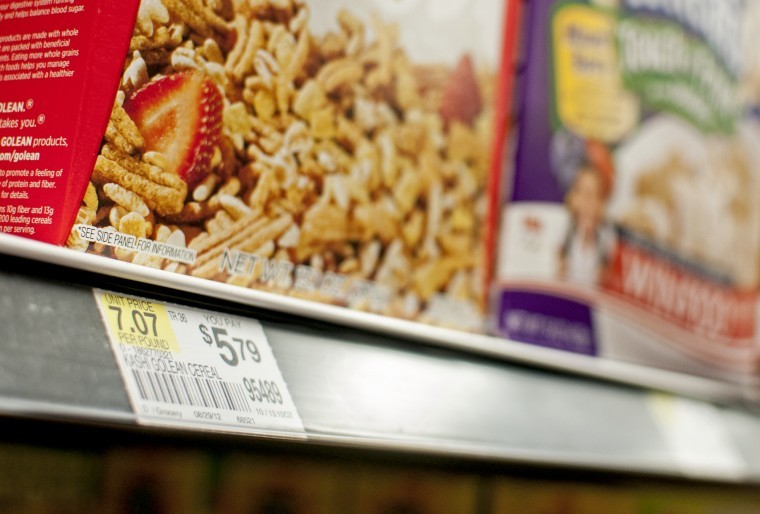
University stores consistently mark up prices from other local retailers, in part because the university has no facility to store non-perishables in bulk.
Darby Whitehair started to notice the price markups from behind her cash register at the Union Shop.
Items at the Stamp Student Union store consistently cost more than at local supermarkets and convenience stores, hikes Dining Services officials said are necessary because the department can’t store items in bulk. Though the ease of purchasing food and goods on the campus often rings up a price 40 percent higher than at private stores — on everything from cereal to cleaning supplies — many students said it’s a struggle to take their business elsewhere.
“I went through $200 Terp Bucks in three trips to the Commons Shop just getting basic groceries,” freshman psychology major Steven Ringer said.
Ringer and his roommate visit the Commons Shop at least once a week to stock up, rather than relying on food from the dining halls. While he likes to make quesadillas in his dorm, Ringer said the cost of the ingredients deters him from eating at home often.
“I think they capitalize on the fact that it’s the only place on campus to get groceries by hiking up the prices,” he said.
Whitehair said people are always surprised by how much they have to pay for their items.
“Sometimes people put stuff back, but most just buy it anyways,” she said.
According to Dining Services spokesman Bart Hipple, the markups are unavoidable because the university does not have a warehouse to store mass amounts of non-perishable items, and Dining Services must rely on small, weekly shipments. Some products, such as ingredients used in dining hall recipes or products purchased from the university, are relatively cheap, Hipple said.
“Dairy products come from the campus dairy, so we get good prices,” he said.
Only the largest of companies buy non-perishable items in bulk because they sell enough of the product for it to be profitable, said Dining Services Assistant Director Dave Bullock, adding the department has not increased its markup and has lowered its prices by about a cent from last year.
“Except for a few items, we don’t sell enough of any single item to get a volume discount,” he said. “The just-in-time delivery process reduces costs and provides fresher products.”
For many suppliers, the university’s academic calendar is also a challenge, Hipple added.
As a result, students like Whitehair said they have to determine what is and isn’t a reasonable buy. While some basic items are as cheap as at local grocery stores, other specialty items tend to cost more. For example, ramen noodles cost $2.55 for a pack of six both at the convenience shops and at local supermarkets, but Cinnamon Toast Crunch costs $6.39 on the campus and $3.59 through Giant’s delivery service, Peapod. A 14 oz. box of Cheerios costs $5.69, while an 18 oz. box is $4.49 through Peapod.
“The boxes of cereal are insane,” she said. “I would never spend that much.”
Cleaning and household supplies are often pricier as well. A single Bounty paper towel roll costs $3.39 and a 12-pack of Scott Naturals are $15.49 on the campus, compared to $2.99 and $9.99, respectively, through Giant’s delivery service. And while a 50 fl. oz. container of Gain detergent runs up $11.49 at a university shop, a container double the size is only $2.00 more through Peapod.
Sophomore computer science major Nick Mosquera tries to buy his groceries elsewhere in order to save some cash.
“Even though it doesn’t feel like real money because you’re using a plan, it’s still food that you’re buying and it doesn’t need to cost that much,” he said.
Mosquera said the total cost of his shopping trips often comes as a surprise because products’ labels have been missing their prices. Dining Services has begun fixing some of the labels and has a large shelf order going in this week, Bullock said, though many items were lacking price listings as of yesterday.
“We are constantly working to keep shelf tags in place and up to date,” he said. “With such a huge variety and small stores, it’s tough to keep tags and items in the same place. … We are always willing to do a price check at the register.”
Mosquera said he understands some services can’t be cheap.
“At other universities students have to pay for athletic events, but they’re free here,” he said. “I guess this is just something that’s hard to avoid.”



